The Rise of E-Commerce in Indonesia
E-commerce has been growing in Indonesia for quite some time and is not going to slow down anytime soon.
The country covers over 17 thousand islands and more than 5,000 kilometers from Sumatra’s western end to New Guinea’s easternmost point.
As a result, ordinary businesses struggle to reach clients in remote places.
Thus why, shopping on the Internet is the perfect solution for reaching these remote places.
Aside from the constant ongoing traffic in major cities across the country.
In 2020, the gross market value of Indonesia’s e-commerce market was US$ 32 billion.
While an increase from US$ 21 billion in 2019.
According to Google, Bain, and Temasek, it might reach US$ 83 billion by 2025.
There are around 138.1 million people who have already shopped online in Indonesia.
After all, based on research from the e-Conomy SEA 2020, Indonesia has the largest e-commerce market in Southeast Asia.
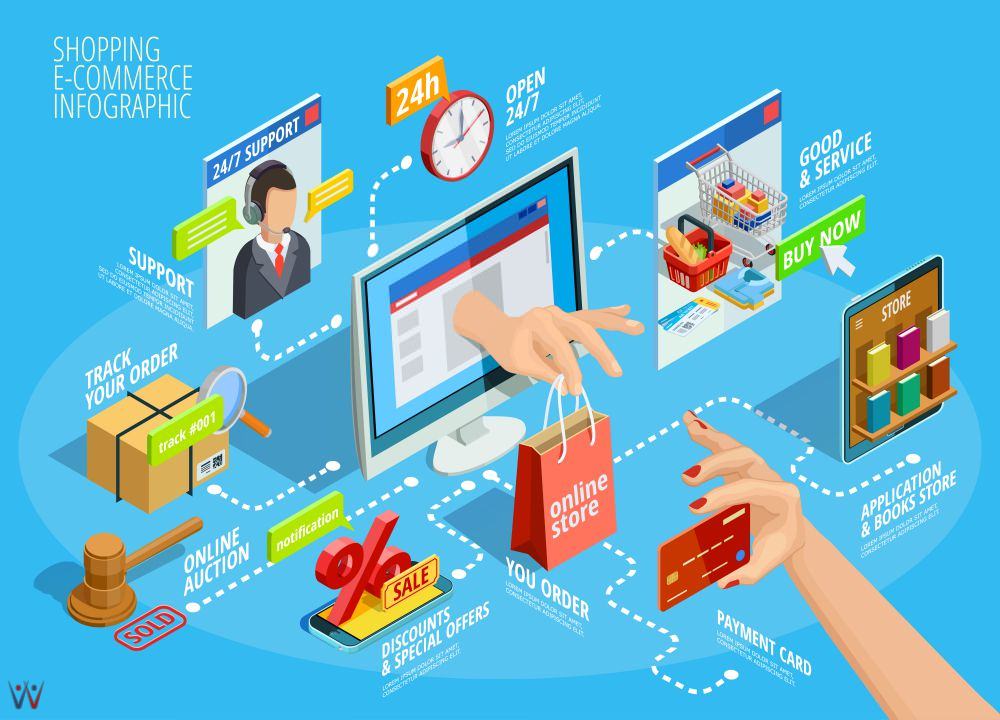
Growth of E-Commerce in Indonesia
It’s not easy to set up an online store.
There is why a lot of factors must be considered for customers to feel at ease when using the platform.
For both consumers and merchants, a trusted online shopping platform can make virtual transactions more secure and easier.
With the evolution of technology, most consumers choose to shop online using e-commerce today.
As a result, it’s not surprising that online shopping platforms are gradually becoming more popular.
Of course, by bringing the finest deals and services to the table.
E-commerce is a term that refers to all purchasing and selling activities that take place via the internet. Despite the fact that television, radio, and the telephone are all electronic equipment.
The word “e-commerce” is now becoming more associated with the internet as a middleman.
The total gross merchandise value (GMV) of Indonesia’s e-commerce was US$ 40.1 billion back in 2020.
For the uninitiated, “GMV” refers to the total value of merchandise sold over a given period of time through a customer-to-customer (C2C) exchange site.
It is a measure of the growth of the business or use of the site to sell merchandise owned by others.
Usually, the metric is used to determine the health of an e-commerce site’s business.
It is most useful as a comparative measure over time.
In addition, besides your typical man in the street, more and more businesses and corporations are using E-commerce and marketplaces.
We are not just talking about small businesses, but also multi-national corporations, which are started to market and sell their products on the internet.
This phenomenon is shown by the rapid expansion of e-commerce in Indonesia, which continues to rise even throughout the pandemic.
The total number of visits per month to the top ten e-commerce sites in Indonesia reaches up to 300 million users.
So, what are those online marketplaces? Below are the 10 most visited e-commerce sites in Indonesia.

1. Tokopedia
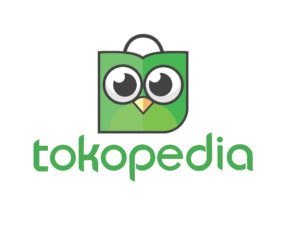
Tokopedia is arguably the number one marketplace in Indonesia, with 135 million visits per month in the first quarter of 2021.
However, despite having the highest market traffic than other e-commerces, Tokopedia only have the GMV of US$ 14 billion.
Leontinus Alpha Edison and William Tanuwijaya founded this company back in 2009, specializing in e-commerce.
The broad variety of product options accessible on Tokopedia is one of the reasons many buyers prefer it.
Electronics are the most popular product category on Tokopedia, followed by fashion and foodstuffs.
The company is a C2C business platform, meaning consumers directly market and sell to other consumers.
It was not long ago that official stores sell directly to consumers, meaning a business to customer (B2C) strategy on this marketplace.
Tokopedia includes various services to assist merchants that sell on the marketplace.
These include broadcast chat, store statistics, promotional features, to finance, where merchants can borrow resources to support their businesses.
2. Shopee
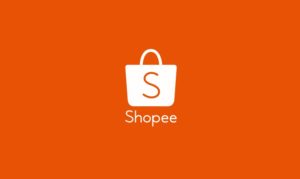
Shopee was founded in Singapore and quickly grew to become the second largest e-commerce in Indonesia, with 127 million visits.
While it doesn’t have as that much online traffic numbers as Tokopedia, Shopee has the highest GMV of all the e-commerce platforms in Indonesia, reaching up to 37% market share or around US$ 14.2 billion.
Surveys show the low costs of Shopee’s products could be the main reason why many customers choose it.
Similarly to Tokopedia, Shopee’s most popular categories are beauty, household appliances, and fashion, among other things.
Shopee was founded in Singapore back in February 2015.
Which was established as a collective mobile-centric marketplace where users can search, shop, and sell.
The platform claims to make online shopping easy and secure for both sellers and buyers by combining logistical and payment support.
Above all, to set itself apart, Shopee provides online shopping security through its own service, the “Shopee Guarantee”.
This means payment to merchants only happened when the customers get their items. This allows for a better “de-risking” of the purchase process and to weed out would-be scams, i.e., sellers running away with the payment even before the delivery of the items.
It also has other useful features like ShopeeLIVE, sales assistants, chat bot, and a variety of other capabilities to their users.
Beauty, household appliances, and fashion – Muslim fashion in particular – are some of Shopee’s most popular product categories.
3. Bukalapak
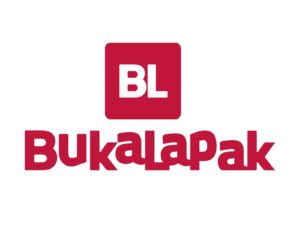
Bukalapak, with 34 million visitors, is the third most popular e-commerce.
It was founded in 2010 with the intention of serving as an online marketplace for small businesses.
Bukalapak now has about 6 million merchants selling a wide variety of products.
Consumers shop at Bukalapak for the same reasons they shop at Tokopedia and Shopee, i.e, reasonable prices and a large selection of products.
Similarly, electronics, fashion, and hobbies and lifestyle products are among the most popular product categories at Bukalapak.
4. Lazada
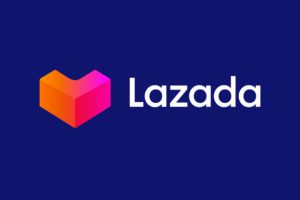
Lazada, an online marketplace operated by Alibaba Group, is ranked fourth with 30 million visits per month.
The Lazada Group, or known as Lazada, is a Singaporean multinational technology business that specializes in e-commerce.
The company was founded back in March 2012 by Maximilian Bittner with the backing of Rocket Internet.
On its initial release, the business has a system that provides selling products first hand from its own warehouses to consumers.
However, in 2013, the company started to change its system by allowing retailers to sell their products on its website.
The market believe Lazada’s reputation and relatively low product prices are the reasons why people choose Lazada as their online shopping platform.
Electronics and fashion items are the most popular product categories on Lazada.
Even though Lazada is in the fourth place in terms of online traffic, it has the biggest number of Facebook followers than any marketplaces in Indonesia.
Lazada also have the GMV of US$ 4.5 billion.
This is probably due to its big influence on the social media platform, like Facebook, Instagram, and Twitter.
5. Blibli

Blibli, the marketplace of the Djarum Group, is ranked fifth.
Receiving more than 19 million visits per month.
Many Blibli customers cite the company’s outstanding reputation and authentic goods as reasons for choosing Blibli.
Electronics, fashion, and groceries are among the most popular product categories on Blibli, as they are on other marketplaces. According to Blibli data, the number of partners has risen to 16 thousand stores in 300 cities.
6. Bhinneka
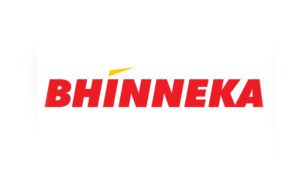
Bhinneka surpassed eBay as the sixth most popular marketplace, with a total of 6 million users. When Bhinneka first established in 1999. It chose to adopt information technology as its primary line of business. However, today, Bhinneka has a variety of merchants selling a wide range of things. Some of them including automobiles, industrial equipment, and other items.
Bhinneka is also strengthening its position as e-commerce that can assist in merchants meet in business to business (B2B). Even assisting collaboration between business and government (B2G).
7. Orami

On the 7th position is Orami, a marketplace that receives 5.3 million visitors per month. This marketplace is quite different than what we have discussed so far. It used to go under the name of Bilna, a shopping website that selling products for babies and pregnant woman. Then, expanding its business reach to beauty and household needs. It was not until 2016 that Bilna changed its name to Orami.
Unlike the marketplace in general, the inventory business model gets goods from brands and sellers and then sells them. This means that the marketplace is the one who makes the sales.
8. Ralali

Ralali is a marketplace with 4.4 million monthly visitors. The e-commerce is another B2B marketplace among the top ten markets. Some of the product categories that are available on the e-commerce are building supplies and office equipments. Price request feature, capital help, logistical services, brand & distributor liaison, and other services are also accessible to merchants on Ralali e-commerce.
Ralali’s initial focus was on selling industrial equipment. Like maintenance, repair, and operations (MRO) items. Ralali began expanding its product categories after 2015. Such as the healthcare industry, restaurant business equipment, fashion & beauty, Horeca, and eight more categories. Ralali introduced a new feature called ‘RFQ’ in 2017, which is designed to facilitate requests for business products that aren’t widely used and aren’t available on the Ralali website or app.
9. JD.id
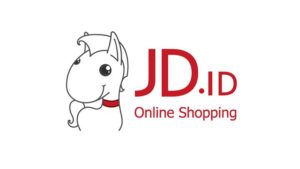
JD.ID launched in Indonesia in October 2015 and now attracts 4 million monthly visitors. It is the 9th most popular website in the country. Since October 2015, JD.ID has been active in Indonesia. Initially, they concentrated on offering clients with hard-to-find electrical devices and gadgets. Such as Apple products and Lenovo’s A2010, which both were released at the end of 2015. Since then, they’ve expanded their product line to include footwear and athletic apparel, as well as beauty and health goods.
10. Zalora
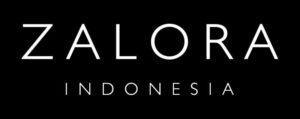
Zalora is ranked on 10th position with 2 million monthly visitors, that mainly focuses on fashion and beauty marketplace. Founded in 2012, Zalora has manage to evolve and become Indonesia’s most popular online fashion site.
While it has an inventory-based business system. Offering a wide range of products from more than 500 local and international companies. Selling household and lifestyle items in addition to fashion and beauty products that ranging from women’s and men’s apparel, shoes, accessories, sports equipment, and Muslim attire, among other things.
If you are also keen to look for jobs or internships from these top e-commerce companies and more in Indonesia, do check out our Job Platform at 9cv9.
Check also our other recommendation for:































![Writing A Good CV [6 Tips To Improve Your CV] 6 Tips To Improve Your CV](https://blog.9cv9.com/wp-content/uploads/2020/06/2020-06-02-2-100x70.png)


